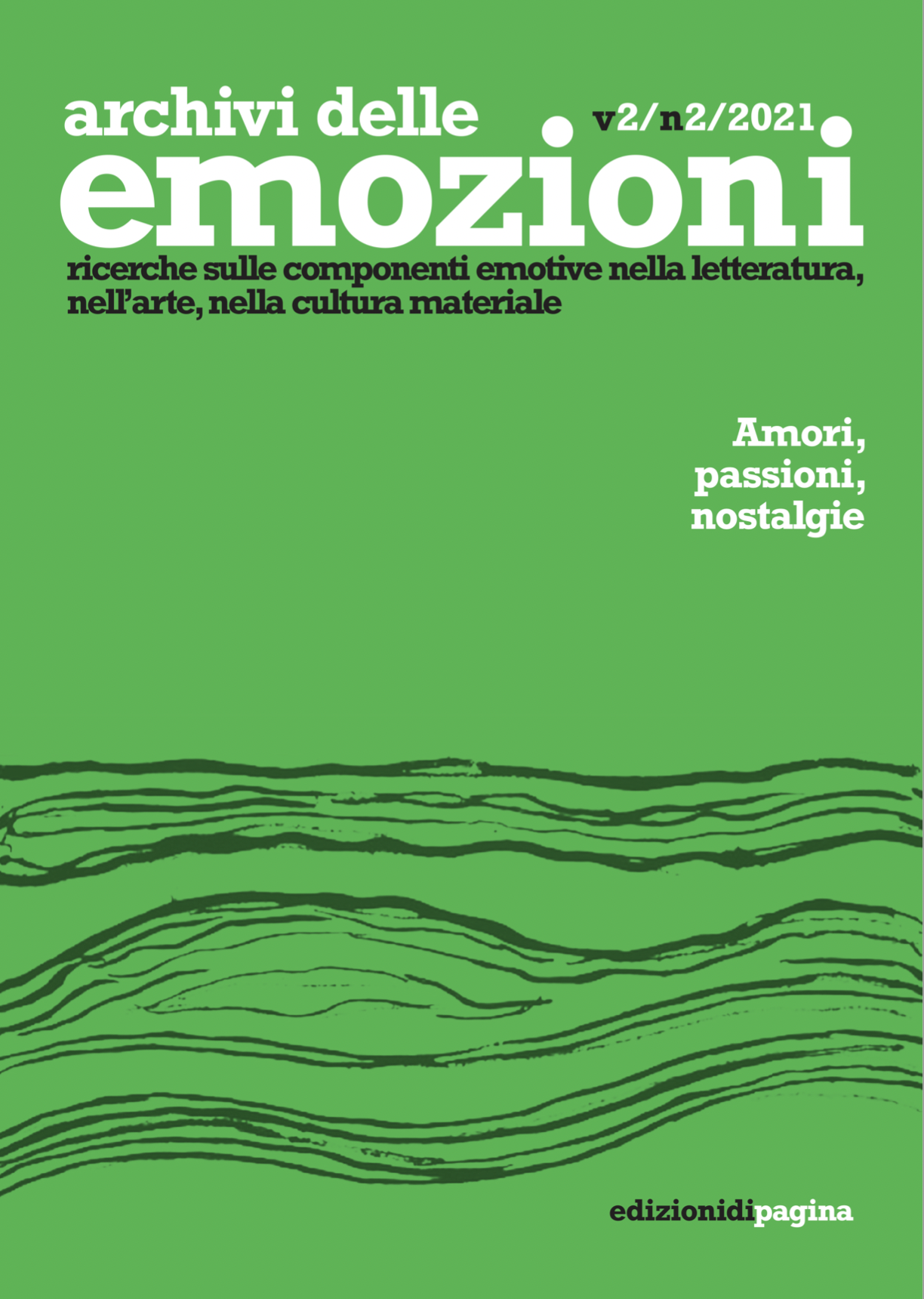Abstract
Intellectual love for God appears a bit out of place in the contemporary dictionary of passions, which has been shaped by Romanticism. Romanticism (or, rather, its vulgarization) has acquainted us to conceive the two ideas of “love” and “intellect” as mutually incompatible, so that the expression “intellectual love” appears something as an oxymoron.
But Spinoza’s idea of Amor Dei intellectualis is not a solitary and isolated example in the landscape of history of Western philosophy, since its ascendance can be traced back to the role of Love as the main passion of the philosopher in Plato’s Symposium and Phaedrus.
Perhaps, the key to a proper understanding of what the philosophers of the past meant when they spoke about this passion is precisely the fact that such an amor intellectualis is directed toward a “God” that is often very different from the anthropomorphic divinities that were venerated in the societies these philosophers lived in: Plato’s god is very different from Athens’ gods, and Spinoza’s god is very different from the god of the Jews and Christians.
In my paper, I would like to draw a sketch (1) of the most general profiles of the ontologies that could ground, from a nowadays laical point of view, a theory of passions in which Amor Dei intellectualis could appear; (2) the way in which in some of the nowadays ontologies (and specifically in the science-informed ones) this cardinal passion of Spinoza's pantheism could be reactualized.
References
ALLEN T.W. 1917-19, Homeri opera, voll. III-IV, Oxford.
BATTELLO M.M. 2016/17, Etologia del dolore. Una visione comparativa, tesi di dottorato, Dipartimento di Scienze Cognitive, Psicologiche, Pedagogiche e degli Studi Culturali dell’Università degli studi di Messina, Dottorato di ricerca in scienze cognitive XXX ciclo , a.a. 2016/17, url: https://iris.unime.it/retrieve/handle/11570/3118166/181341/TESI%20BATTELLO.pdf consultato in data 30 XII 2021.
BERTI E. 2000, Unmoved movers) as efficient cause(s) in Metaphysics Λ 6, in FREDE M., CHARLES D. (eds.), Aristotle’s Metaphysics Lamba. Symposium Aristotelicum, Oxford, pp. 182-206.
BODÉÜS R. 1992, Aristote et la théologie des vivants immortels, Paris.
BOTTER B. 2005, Dio e divino in Aristotele, Sankt Augustin.
BURNET J. 1900-1907, Platonis opera, Oxford.
CANTWELL SMITH B. 2019, The Promise of Artificial Intelligence. Reckoning and Judgement, s.l.
COCCIANTE R., LUBERTI M., CASELLA P. 1974, Bella senz’anima, in Anima, s.l.
AUTORE 2015, Perceptual Order and Cosmic Order according to Aristotle, negli atti del « Colloque International des doctorants en philosophie ancienne et en sciences de l’Antiquité, Paris 2010 »; edizione online « Zetesis », url: https://zetesis.hypotheses.org/files/2015/04/2Autore.pdf , consultato in data 31 XII 2021.
AUTORE 2019, De An. 1.1, 403a25 and the lógoi ényloi: an Heraclitean heritage in Aristotle’s psychology in MEDDA R., ZUCCA D. (eds.), The Soul/Body Problem in Plato and Aristotle, Sankt Augustin, pp. 95-113.
AUTORE 2020, Aristotle on the life of god, and on eternity of life and time, « Journal of Hellenic Religion », XIII, 77-113.
GAUTHIER M.-H. 2014, L'amitié chez Aristote : une mesure de l'affect, Paris.
GEBHARDT C. 1925, Spinoza. Opera, Heidelberg.
JOUVET M. 1993, Il sonno e il sogno, Parma (ed. or. Le sommeil et le rêve, Paris 1992).
LAKS A. 2000, Metaphysics Λ 7, in FREDE M., CHARLES D. (eds.), Aristotle’s Metaphysics Lamba. Symposium Aristotelicum, Oxford, pp. 207-243.
LAVIOLA G. 2018, Esperienza del dolore nel mondo animale, url: http://old.iss.it/binary/neco/cont/Dolore-Animale_1.1111066156.pdf, consultato in data 21 v 2018.
LEVINE M. P. 1994, Pantheism: A Non-Theistic Concept of Deity, London.
MANZINI F. 2009, Spinoza: Une Lecture d’Aristote, Paris.
MONOD J. 1974, Il caso e la necessità. Saggio sulla filosofia naturale della biologia contemporanea, Milano (ed. or. Le hasard et la nécessité. Essai sur la philosophie naturelle de la biologie moderne, Paris 1970).
MORPURGO G. 1997, La logica dei sistemi di regolazione biologica, Torino.
MORAUX P. 1965, Aristote: Du ciel (texte établi et traduit), Paris.
NUSSBAUM M.C. 1978, 1985, Aristotle’s De motu Animalium. Text with Translation, Commentary and Interpretary Essays, Princeton.
NUSSBAUM M.C. 1996, La fragilità del bene. Fortuna ed etica nella tragedia e nella filosofia greca, Bologna (ed. or. The Fragility of Goodness. Luck and Ethics in Greek Tragedy and Philosophy, Cambridge, 1986).
OTTO R. (1966) 1994, Il sacro. L’irrazionale nell’idea del divino e la sua relazione al razionale, Milano (ed. or. Das Heilige. Über das Irrationale in der Idee des Göttlichen und seine Verhältnis zum Rationalem, München, 1936).
REALE G. (1998) 2009, Platone. Fedro, Milano.
REALE G. (2001) 2013, Platone. Simposio Milano.
ROBIN L. 1908, La Theorie platonicienne de l'amour, Paris.
ROSS W.D. 1961, Aristotle: De anima (edited, with introduction and commentary), Oxford.
ROSS W.D. (1924) 1966, Aristotelis Metaphysica (a revised text with introduction and commentary), Oxford.
ROSS W.D. (1936) 1998, Aristotle’s Physics, Oxford.
VALLORTIGARA G. 2000, Altre menti. Lo studio comparato della cognizione animale, Bologna.
VARZI A. 2005, Ontologia, Bari.
VITALI M. 1995, Platone, Repubblica o sulla giustizia, introduzione di H. Kohlenberger, traduzione e commento di M. Vitali, Milano.
AAVV. 2003, La sacra Bibbia, CEI, url: http://www.vatican.va/archive/ITA0001/_INDEX.HTM .


